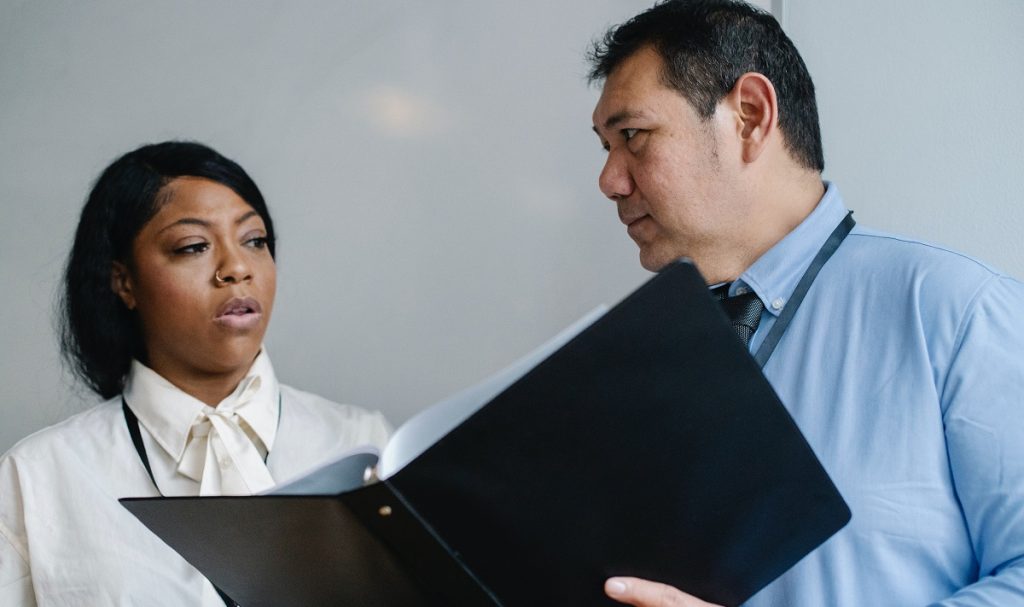Securing an executive assistant role is a highly competitive endeavor that requires you to truly differentiate yourself during the interview process. The questions can be probing, testing not just your skills but your poise under pressure. However, by leveraging the HIGH5 strengths assessment, you gain a powerful advantage in showcasing your unique qualifications. This personalized evaluation illuminates your standout strengths, allowing you to articulate precisely how your talents align with the role’s demands. Understanding and highlighting your core competencies enables you to provide insightful, tailored responses that resonate deeply with potential employers.
The HIGH5 assessment empowers you to confidently convey why you are the ideal candidate, making a memorable impression that separates you from the field. With this focused preparation centered on your inherent strengths, you can approach each executive assistant interview poised to deliver compelling answers and maximize your chances of landing your dream position. Knowing which questions to expect and how to answer them can give you an edge in your job search. In this article, we’ve collected the most common executive assistant interview questions and provided sample answers. With this guide, you can walk into any interview and nail it confidently.

What skills are important for an executive assistant role?
Employers and hiring managers are looking for executive assistants with the professional know-how to be influential right-hand people to the executives they would be supporting. However, there are also specific skills and qualities they’ll be looking for, such as the following [1].

Time management
Executive assistants must juggle various tasks and ensure they are completed within tight deadlines, making efficient time management essential.
Attention to detail
Carefully managing information, schedules, and documents requires a keen eye for detail to avoid mistakes and ensure accuracy.
Communication skills
Strong verbal and written communication is vital for interacting with executives, clients, and teams to convey information clearly and effectively.
Multitasking
An executive assistant often handles multiple projects simultaneously, requiring the ability to prioritize and switch between tasks seamlessly.
Project management
Managing smaller projects or assisting with larger ones involves organizing tasks, meeting deadlines, and ensuring the project stays on track.
Business administration
A solid understanding of business operations helps executive assistants support executives in managing day-to-day tasks and administrative functions.
Coordination
Effective coordination of meetings, schedules, and team activities ensures that executives and staff can work together smoothly.
Critical thinking
The ability to analyze situations, identify potential issues, and offer solutions is crucial for handling unexpected challenges.
Problem-solving
Quick and efficient problem-solving skills enable executive assistants to resolve issues that arise, ensuring smooth operations for the executive.
Adaptability
An executive assistant must be flexible and adapt to changes in priorities or unexpected shifts in the executive’s schedule or workload.
Discretion and confidentiality
Handling sensitive information requires discretion and the ability to maintain strict confidentiality to protect the executive and the organization.
Presentation skills
The ability to create clear, compelling presentations for executives ensures that complex information is communicated effectively to various stakeholders.
Relationship building and influence skills
An executive assistant has exposure to some of the organization’s highest-ranking executives. In this role, executive assistants must use their relationship-building skills to influence those around them.
29 executive assistant job interview questions and answers
As you prepare for an executive assistant interview, it’s imperative you practice common questions. Below is a list of executive assistant interview questions that you may be asked. Under each question, there is an explanation as to why the question is important and a model answer.

1. What are your strengths and weaknesses?
Why this is important: Hiring managers want to know you better and how they may best work with you. While talking about your weaknesses may be scary, be honest and share a weakness that you are actively working on. Hiring teams will appreciate your transparency and see that you are open to learning and growing.
How to answer: “One of my strengths is adaptability. In the ever-changing environment of an executive assistant role, I can swiftly adjust to new challenges, whether it’s managing unexpected schedule changes or adopting new technology to enhance efficiency. This strength allows me to maintain productivity and support my executive effectively, no matter the circumstances. A weakness of mine is my tendency to take on too much independently. I sometimes hesitate to delegate tasks others can handle, leading to overload. However, I am actively working on this by improving my delegation skills, trusting my colleagues more, ensuring a balanced workload, and fostering a collaborative team environment.“
Pro Tip From HIGH5
Leveraging HIGH5’s free strengths test can profoundly benefit individuals aiming to pinpoint their unique strengths and weaknesses, especially when preparing for roles like executive assistant. The test, grounded in scientific research, uncovers your top five strengths out of twenty, offering a detailed glimpse into where your natural talents lie.
By understanding these strengths, you can craft a resume or CV that highlights your competencies and showcases how you’re uniquely qualified for the role. Presenting this information during interviews demonstrates self-awareness and a proactive approach to personal development.
By articulating clear examples of how your strengths have contributed to your past successes, you provide tangible evidence of your potential value to the organization. This approach transforms the interview conversation from a simple question-and-answer session to a powerful demonstration of your ability to leverage your strengths for organizational benefit.
2. What steps did you take to rectify a mistake you made in the past, and what lessons were learned?
Why this is important: Interviewers want to know that you can take responsibility for your mistakes and learn from them.
How To Answer: “In a previous role, I was juggling multiple tasks and deadlines when I miscalculated a timeline for one of my tasks, leading to a missed deadline. When I realized my mistake, I immediately took steps to rectify it by speaking with my manager about what had happened so that she knew exactly what was happening. Then, I created a quick action plan to help me prioritize the mistake and I sent the project over to our stakeholders. This experience taught me the importance of organizing and double-checking my work before submitting it to avoid mistakes.“
3. What tools do you use to help keep you organized?
Why this is important: Interviewers want to know that you have a system for organizing yourself and your work.
How To Answer: “Organization is critical for me as an executive assistant, so I use various tools to help keep things on track. For example, I have used online calendars and task management software such as Trello, Asana, and Microsoft Projects to set reminders, organize tasks, make notes and track progress. These tools help ensure the accurate organization of data which supports efficient workflow across departments. I also like to create daily to-do lists with deadlines to prioritize my work accordingly. Additionally, I ensure all documents are appropriately labeled and stored efficiently in the cloud.“
4. What software programs have you used in the past? Did any of them help contribute to your success?
Why this is important: Interviewers want to know that you are comfortable with technology and can learn new programs quickly.
How To Answer: I am proficient in using various software programs necessary for my field. In my previous post, I had extensive experience using Microsoft Office Suite, including Word, Excel, and Outlook. Additionally, I was well versed in using cloud services such as Dropbox and Google Drive, which I utilized for archiving important documents safely. My knowledge of these programs has enabled me to be successful in my role as an executive assistant by aiding communication between colleagues across departments, helping maintain regularly updated records, and ensuring the timely delivery of presentations and reports.
5. Tell us about when an unanticipated issue required you to reschedule.
Why this is important: Interviewers want to know that you can think on your feet and handle unexpected issues quickly and effectively.
How To Answer: In a previous role, I was tasked with booking a meeting for one of the executives I worked with. Unfortunately, an unanticipated issue arose just hours before the scheduled start time, which meant the executive needed to be elsewhere. This threw my carefully planned schedule off-course. However, I used my initiative to reschedule the meeting as soon as possible by looking at alternative times in the day when both parties could attend. In addition, I notified all attendees about the new timing so that no one was left out of the loop. This experience taught me how important it is to remain flexible as a professional and how to juggle unexpected events efficiently.
6. How can you ensure that you correctly predict an executive’s needs?
Why this is important: Interviewers want to know that you can anticipate an executive’s needs and provide them with the support they require.
How To Answer: Understanding the executive’s role, responsibilities and priorities is key to predicting their needs. In my previous roles as an executive assistant, I got to know the executives I supported personally by asking questions about their daily tasks, what they like/dislike, and how they prefer things done. By doing this, I could stay one step ahead in anticipating their needs and ensuring everything was taken care of before it became a problem.
Additionally, I proactively scheduled regular check-ins with each executive to get feedback on how I was doing, stay informed of upcoming projects, and ensure I wasn’t missing anything. This enabled me to serve as a valuable asset to the team while providing the executives with everything they required to be successful.
7. What is your primary duty as an executive assistant?
Why this is important: Interviewers want to know that you understand what is expected of you if you take on this role.
How To Answer: My primary responsibility as an executive assistant would be to provide support services such as scheduling appointments, preparing reports, organizing meetings, and handling correspondence on behalf of the executive. Additionally, I would work closely with other departments like accounting and human resources to coordinate vital tasks for the executive’s success.
I would be responsible for maintaining records, representing the executive during meetings, and aiding communication between colleagues across departments. My role would also involve helping maintain regularly updated records and ensuring the timely delivery of presentations and reports. Overall, my primary duty would be to provide efficient administrative support to the executive to succeed in their job.
8. Can you tell me about a time when you simultaneously supported more than one executive?
Why this is important: Interviewers want to know that you have experience working with multiple executives.
How To Answer: In my current role, I am responsible for providing administrative support to two executives. To ensure that all of their needs are met, I have implemented a system wherein each executive has access to an individual calendar and task list, which I maintain. This allows me to prioritize tasks while ensuring both executives receive the same level of attention and support. Additionally, if one executive’s work overlaps with another’s, I will coordinate between them to ensure everything runs smoothly.
Lastly, to keep myself organized when working with multiple executives at once, I maintain a daily/weekly schedule outlining all the tasks that need to be completed for each executive on a given day or week. This helps me stay on top of their needs and ensures no charges are left unfinished. I simultaneously provided comprehensive administrative support to both executives by following these steps.
9. If you were to receive two sets of directions from two different executives that conflict with each other, how would you handle the situation?
Why this is important: Interviewers want to know that you can handle difficult situations calmly and professionally.
How To Answer: If I ever received two conflicting sets of directions from two different executives, I would first contact both and explain the situation. Then, I would work with them to devise a mutually beneficial solution that works best for all parties involved. Additionally, if possible, I would suggest alternative options that could be implemented while still meeting the needs of both executives. Lastly, I would document any decisions made, so there is clear communication between everyone involved. This approach allows me to find a suitable resolution without compromising anyone’s objectives or expectations.
10. Tell me about a time you had to produce a report.
Why this is important: Interviewers want to assess your ability to analyze and present data in an organized, comprehensive format.
How To Answer: Last year, I was tasked with creating a monthly report for my department. First, I gathered the relevant data from all sources and compiled it into an easily understandable spreadsheet. I analyzed the data and identified key trends and patterns presented in the final report. Additionally, I included graphics, diagrams, and other visuals that could help readers understand the findings quickly and effectively. Ultimately, by taking a thorough approach to creating this report, I was able to provide clear insights that helped inform executive decisions.
11. What is your experience level with booking travel domestically and internationally?
Why this is important: Interviewers want to know that you have the necessary experience coordinating travel for busy executives.
How To Answer: I have extensive experience in this area, having booked domestic and international trips for multiple executives over the years. When planning these trips, I consider all the necessary details, such as flight availability, accommodations, transportation needs, etc. Occasionally, I am also responsible for researching visa requirements or other special documentation needed to enter certain countries. Moreover, I always compare prices from various vendors when booking flights or hotels to get the best rates. Doing so has saved the company a considerable amount of money.
12. Reflect on when you toiled over a troublesome project with others. How did you go about it? What part did you take on? What was the result?
Why this is important: Interviewers want to assess your ability to collaborate and work effectively in teams.
How To Answer: Recently, my team had to develop a pretty complex application. To tackle this large-scale project, we divided the tasks and worked together as a cohesive unit. My role mainly focused on troubleshooting any technical issues that arose throughout the process while also assisting with coding or deploying updates when needed. I provided regular updates throughout this project, so everyone was well-informed of our progress. In the end, we delivered a successful product that met all requirements and was delivered on time. Working with my teammates allowed us to produce an exceptional outcome for this project.
13. What techniques do you use to keep cool when the pressure is on, and things are moving quickly?
Why this is important: Interviewers want to gauge your ability to stay calm and focused when the pressure is on.
How To Answer: One technique I use to keep my cool in high-pressure situations is to take a few deep breaths before responding. This helps me to regain focus, think more clearly, and remain composed even when things are moving quickly. I also ask questions if I need clarification or further instructions to avoid making assumptions under time constraints. Additionally, I prioritize tasks based on importance to stay organized and promptly address any urgent matters. These techniques help me stay productive and effective even when the pressure is on.
14. How do you receive feedback meant to help improve your work?
Why this is important: Interviewers want to know how you handle constructive criticism and if you are open to growing professionally.
How To Answer: I always appreciate feedback to help me improve my work. Whenever I receive such feedback, I take the time to listen carefully and understand it from all angles before responding. Ultimately, I can strive continuously toward excellence in my work by remaining receptive and embracing constructive criticism.
15. If you received a project that was too much for one person to handle, how would you tackle it?
Why this is important: Interviewers want to gauge your ability to manage a large-scale project effectively.
How To Answer: When faced with such a situation, I would first assess the project’s scope and break it down into manageable tasks. Then, I would create a timeline based on priority level and ensure resources are allocated accordingly. Additionally, I would coordinate with other team members to ensure everyone’s roles and responsibilities are clearly defined. Lastly, I will track progress regularly and update the timeline if necessary. By following these steps, I can keep the project running efficiently even when faced with an overwhelming workload.
16. Describe a time when you disagreed with a coworker on a project. How did you overcome your differences? Was the project successful in the end?
Why this is important: Interviewers want to know if you can navigate conflicts amicably and professionally.
How To Answer: One time, I was working on a project and had different views than my colleague regarding how it should be handled. When this happened, instead of getting defensive or argumentative, I focused on understanding their point of view by actively listening and asking clarifying questions. Once we both understood what the other was trying to say, we sat down together and came up with a solution encompassing our viewpoints. Ultimately, the project was a success, and we learned from the experience. This was a great example of how being respectful and compromising can help resolve any differences that may arise in the workplace.
17. What qualities do you possess that enable you to be a successful executive assistant? Why do you think these qualities are essential for the job?
Why this is important: Interviewers want to understand how you see yourself as an executive assistant and what qualities you believe make someone successful in this role.
How To Answer: As an executive assistant, I possess strong organizational and communication skills essential for ensuring tasks are handled promptly. Additionally, my attention to detail is critical for ensuring no details go unnoticed. I also have excellent interpersonal abilities, allowing me to build positive relationships with colleagues and executives. Finally, I can remain calm under pressure, despite overwhelming workloads or unexpected problems. These qualities are critical for any executive assistant as they enable them to deliver results without compromising the quality of work.
18. What principal weakness prevents you from performing optimally at work? What creates this obstacle for you, and how can you remove it?
Why this is important: Interviewers want to understand what challenges you may face in the workplace and how you address them.
How To Answer: My main weakness is that I sometimes struggle with staying organized when dealing with multiple tasks or deadlines. This obstacle arises from my tendency to focus on one task for too long before moving on to the next. To overcome this, I have developed a strategy of breaking down large tasks into smaller actionable items and then creating a timeline based on priority level so that I can be sure not to miss any critical details. This has helped me stay organized even when facing a heavy workload.
19. On a scale of 1-10, how would your previous employer rate your written and verbal communication skills?
Why this is important: Interviewers want to understand better how well you communicate with others.
How To Answer: My previous employer would rate my written and verbal communication skills at an eight or above. While working with them, I was always aware of the importance of conveying messages clearly, and concisely so that they were easy for all parties involved to understand. This required me to stay updated on industry trends and practice active listening to interpret what was being conveyed to me accurately. Through this approach, I was able to develop strong relationships with colleagues as well as executive staff.
20. What would you do if you were sent into a file room in complete disarray?
Why this is important: Interviewers assess your ability to remain organized and handle unexpected tasks.
How To Answer: If I were sent into a file room in complete disarray, my first step would be assessing the organization level needed. Then, I would create an action plan detailing the steps necessary to bring order back to the space. This could include categorizing documents by type or date, purging unnecessary items, and creating filing systems for easy retrieval. Finally, I would check my work against the original request before submitting my results for review.
21. If an executive you support was traveling and their flight got unexpectedly delayed, what would you do to ensure they could still give their presentation on time?
Why this is important: Interviewers want to understand how you handle yourself when faced with an unexpected situation.
How To Answer: If an executive I support had a flight delay, I would first inform them of the change in their travel plans and offer my assistance in finding alternate options. This could include booking another flight or searching for nearby hotels or transportation services. Then, I would contact the venue hosting the presentation and explain the situation so that we could make any necessary changes to ensure that the production was still delivered on time. Finally, I would continuously monitor for any further delays or potential complications so that we can adjust our plan accordingly.
22. What do you look into when choosing where to stay during your travels?
Why this is important: Interviewers ask this question to assess your attention to detail when it comes to travel planning.
How To Answer: When choosing where to stay during my travels, I consider various factors such as budget, safety and security measures, customer reviews, amenities offered, location of my destination, distance from airports or public transportation options, and (if needed) whether the hotel is pet-friendly. I also look into special offers or packages that may make the stay more enjoyable or cost-effective. My goal is always to find the best balance between value and quality so that I’m able to get the most out of my travel experience.
23. What do you love most and least about your job as an executive assistant?
Why this is important: Interviewers want to know what motivates you in this role and any potential areas of improvement.
How To Answer: What I love most about my job is the sense of accomplishment I get from completing tasks efficiently and effectively. I also enjoy the various duties and responsibilities that come with the role, which keeps me engaged and motivated. On the other hand, what I like least about this job is how demanding it can sometimes be, especially when taking on multiple projects simultaneously. However, I always strive to stay organized and prioritize tasks to ensure a high standard of work, no matter how tough things may seem.
24. If you had the chance to take more training, what would it be?
Why this is important: Interviewers want to ensure that you are open to additional training and improving your skill set.
How To Answer: If I had the chance to take more training, I would focus on developing my communication and problem-solving skills. An effective communicator is essential for this role, as you must work collaboratively with everyone, from executives to staff, to complete the job. In addition, having a solid set of problem-solving skills will help me be better prepared when faced with unexpected situations or challenges that require quick thinking and creative solutions.
25. How do you tackle a problem when facing one?
Why this is important: Interviewers want to ensure that you have the right mindset and approach when resolving issues.
How To Answer: When faced with a problem, I always take the time to assess the issue properly and research potential solutions before making a decision. I also like to stay calm and open-minded to consider multiple options objectively and make sure that the best choice is made for everyone involved. Furthermore, if needed, I will enlist help from others to find an effective resolution as quickly as possible. In addition, after resolving the issue, I constantly review what happened and look for ways to prevent similar problems from arising.
26. What aspects of your previous education and work experiences have prepared you to become an executive assistant?
Why this is important: Interviewers want to know that you have the necessary skills and knowledge to be successful in this role.
How To Answer: My previous education and work experiences have prepared me well for my current job as an executive assistant. During my studies, I developed a strong organization and time management foundation, which has helped me set up virtual meetings or manage complex schedules. In addition, I also gained experience working with databases, handling customer relations, and engaging in various administrative tasks while employed at my last job. These areas of expertise are applicable here, so they’ve provided me with a good starting point as I continue to grow in my current role.
27. Have you ever had to keep information confidential? If so, why and what happened as a result?
Why this is important: Interviewers want to know that you can be trusted with sensitive information, which is a crucial part of being an executive assistant.
How to answer: Yes, I have had to keep information confidential. In my last job, I was responsible for handling confidential customer information and was required to retain this data securely at all times. As a result, I put in extra effort to ensure that the information remained private and protected by regularly monitoring the database and setting up additional security measures if necessary. Fortunately, those efforts paid off, and no incidents occurred as we could maintain the data’s integrity until it was no longer needed.
28. When was the last time you were given confidential information that made you feel uneasy? How did you manage the conversation?
Why this is important: Interviewers want to evaluate your ability to remain professional and composed when faced with sensitive information.
How To Answer: “The last time I was given confidential information that made me feel uneasy was during a meeting with one of our clients. They had requested access to certain documents, which could have put the company at risk if they had been released. Therefore, I took the appropriate steps to ensure that the conversation remained private by ensuring we were in a secure location and notifying other team members about the situation. Furthermore, I carefully explained why access to the documents was restricted and outlined what needed to be done to get approval. In doing so, I managed to maintain everyone’s trust while protecting the company’s interests.“
29. Why do you want to join our team?
Why this is important: Interviewers want to know that you are genuinely interested in their organization and the role on offer.
How To Answer: “I am passionate about joining your team because of your work and the opportunities for growth it offers. From what I’ve seen, your company emphasizes developing innovative solutions and pushing boundaries to create better products and services for its customers. As someone who is always striving to learn more and stay ahead of the competition, this environment would be an ideal fit for me as I could explore new ideas while contributing to the mission of improving people’s lives through technology. Joining your team would also be an opportunity to work with some of the brightest minds in the industry, and I am confident that I could make a positive impact here.“
Questions for you to ask in an executive assistant job interview
It’s not enough to prepare your answers for an interview. You also need to know what questions to ask in an interview. At the end of many interviews, the hiring team will give you the chance to ask your own questions. This is your opportunity to figure out if this job is the right job for you. Remember, they are trying to determine if this job is a good fit for you, so ask questions that will help you decide if you want to work with this team.

When would you like to hire someone?
The interviewer’s timeline for hiring someone is essential to consider when applying for a job. This can help you determine if the position is correct for you and whether it fits your schedule.
To whom will I be reporting?
Understanding who you will be working with and reporting to can help you better understand the role and its responsibilities. It also allows you to establish a relationship with your future supervisor beforehand, which may make transitioning into the new role more manageable.
How would you describe the hiring manager’s/your leadership style?
As an executive assistant, you will work with your manager every day, throughout the day. So, it’s important to understand what type of leader they are and how you can best work with them.
Can you outline your process for training new employees?
Knowing what type of training would be involved in the job can give you an idea of how quickly you can expect to be up and running. Understanding the training process also allows you to identify any areas of weakness that need to be addressed before beginning work.
How often do you review your employees’ performance?
Knowing how often an organization reviews employee performance can help you prepare for future challenges or opportunities. It also gives you insight into the expectations and standards of the company, as well as what kind of feedback you are likely to receive from supervisors.
What is the culture like in this group?
Asking about the overall culture at a company will give you an understanding of whether or not it’s a good fit for your personality type and goals. It will also help you determine if the working environment is conducive to professional development.
What qualities do your top executive assistants share?
Asking this question allows you to gain insight into what qualities make a successful executive assistant in the company. It can help you understand what strengths and skills are valued and will enable you to identify areas for improvement before starting the job.
How to prepare for an executive assistant job interview?
Preparing for an executive assistant job interview requires a strategic approach that highlights your unique strengths and how they make you an exceptional candidate. Utilizing HIGH5’s free strengths test can significantly aid in this preparation, providing insights that align closely with the demands of an executive assistant role. Firstly, take the HIGH5 strengths test to uncover your top five strengths. This isn’t just about knowing what you’re good at; it’s about understanding how these strengths specifically apply to the role of an Executive Assistant.
For instance, if “Problem-Solving” emerges as one of your strengths, you can prepare examples of past scenarios where you effectively navigated complex situations or anticipated potential issues before they arose. This ability is crucial for executive assistants, who often need to think on their feet and manage unforeseen challenges efficiently.
If your results highlight “Empathy” as a strength, this indicates your ability to understand and share the feelings of others, a vital skill for managing relationships within an organization. You can discuss how this strength helps you facilitate smooth communication between departments or handle sensitive information with discretion and tact. Should “Organization” be one of your top strengths, this directly correlates to the core responsibilities of an executive assistant. Demonstrating your knack for keeping schedules, managing tasks, and ensuring seamless operations will be particularly persuasive to potential employers. You can share specific instances where your organizational skills led to improved productivity or contributed to the success of a project.
For candidates with “Adaptability” as a critical strength, this speaks volumes about your capacity to handle the dynamic demands of an executive assistant role. Discuss how you’ve successfully adjusted to changes in the workplace, whether it’s adopting new technologies, adjusting to different leadership styles, or managing shifting priorities. Finally, if “Communication” appears among your top strengths, this is your opportunity to showcase your ability to effectively convey information, mediate discussions, and facilitate open channels of communication across all levels of an organization. Illustrate how your communication skills have contributed to resolving conflicts, fostering team collaboration, or supporting executive decision-making.
Using the STAR method
The STAR method is an effective way to answer job interview questions [2]. This technique requires you to break down your answers into four parts: Situation, Task, Action, and Result. The Situation part of the response should provide the context for the question. The Task section should explain what was required of you in that situation. The Action portion is where you should describe how you approached the task or handled it. Lastly, the Result will allow you to emphasize what was accomplished by your actions. Using this format when answering a question can help demonstrate your experience and ability to problem-solve. It also allows you to tell a story about how you overcame a challenge, which can be more engaging than simply providing facts and figures.
Executive assistant interview questions FAQ
What are the top 3 skills of an executive assistant?
The top 3 skills of an executive assistant are:
- Time management: Executive assistants often juggle multiple tasks at once, so they need excellent time-management skills to prioritize and stay on top of their workload.
- Interpersonal skills: Executive assistants must be able to interact diplomatically with various people, including clients and colleagues, at all levels in the organization.
- Organizational skills: Excellent organizational abilities help executive assistants store data efficiently, track deadlines, and accurately manage client files.
What is your greatest strength as an executive assistant?
Answering this question requires you to assess your skills and qualities as an executive assistant. This is an opportunity to your professionalism and why you are a particularly well-suited executive assistant candidate. Examples of strengths could include the ability to multitask, a high level of attentiveness to detail, and good problem-solving skills. Additionally, you may want to emphasize your ability to prioritize tasks, professionalism, and excellent communication skills.
What are the top 3 skills of an executive assistant?
The top 3 skills are time management, communication, and organizational skills, all crucial for handling multiple tasks efficiently, interacting with executives and teams, and maintaining order.
Why should we hire you as an EA?
I possess a strong combination of organizational skills, adaptability, and excellent communication abilities, making me well-equipped to manage complex tasks and support executives efficiently. I’m proactive, detail-oriented, and committed to ensuring smooth operations.
Conclusion
Succeeding in your executive assistant job interview is key to landing the position. Understanding the types of questions and scenarios that may come up during the interview process and preparing ahead of time with a portfolio or other evidence of your experience are both keys to success. Additionally, researching the company and its culture can help you tailor your answers to their needs. By taking these simple steps, you can ace your executive assistant job interview and have a successful career in this field.
References:
- American Society of Administrative Professionals. (2024, September 3). 7 Essential Resources for Elevating the Admin Role in Your Organization. Asaporg.com; ASAP. https://www.asaporg.com/7-essential-resources-for-elevating-the-admin-role-in-your-organization
- Massachusetts Institute of Technology. (2022, June 13). Using the STAR method for your next behavioral interview. Career Advising & Professional Development | MIT. https://capd.mit.edu/resources/the-star-method-for-behavioral-interviews/


